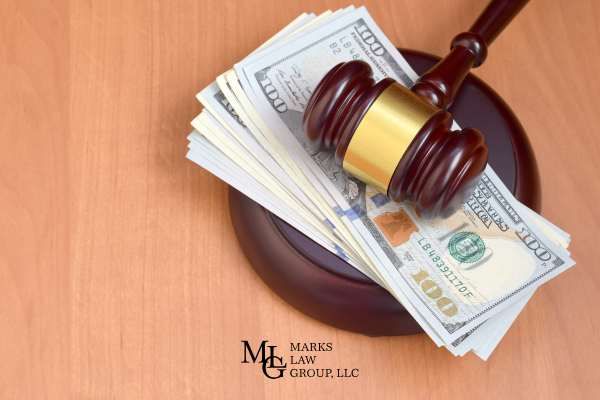CO2 poisoning in hotels and apartments can have devastating health impacts, often caused by faulty appliances, poor ventilation, or neglect of safety measures. For those affected, the effects of carbon monoxide exposure can range from mild symptoms to severe, life-altering injuries. When this exposure results from someone else's negligence, pursuing compensation is essential to cover medical costs, lost wages, and other expenses, providing a path forward after such a traumatic experience.
If you or a loved one has suffered from CO2 poisoning due to hotel or apartment conditions, it's important to act. Our team of injury lawyers in Decatur is here to help you understand your options for recovery and fight for the compensation you deserve. Contact us at (678) 251-9309 to discuss your case and learn how we can support your legal journey.
Common Causes in Hotels and Apartments
Carbon dioxide (CO2) poisoning in hotels and apartments can result from various sources, often linked to poor ventilation and malfunctioning appliances. Understanding these causes can help in preventing potential hazards.
- Poorly Ventilated Heating Systems: In both hotels and apartments, poorly ventilated heating systems like gas heaters, boilers, and furnaces can lead to CO2 buildup. If these systems are not properly maintained, they can allow carbon dioxide to accumulate in enclosed spaces, posing a risk to occupants.
- Malfunctioning HVAC Systems: Heating, ventilation, and air conditioning (HVAC) systems that aren’t regularly inspected or maintained can circulate CO2 if there’s a leak or clog. In hotels with centralized HVAC, this can lead to elevated CO2 levels throughout the entire building.
- Fireplaces and Stoves: Fireplaces, especially gas fireplaces, are common in apartments and hotels. If these areas are poorly ventilated, they can produce excess CO2. Gas stoves in apartment kitchens, particularly without exhaust fans, can also lead to increased CO2 levels in closed spaces.
- Water Heaters and Boilers: Hotels and large apartment buildings often use gas-powered water heaters and boilers. If these units are housed in poorly ventilated areas or have faulty combustion systems, they can emit CO2 that seeps into guest rooms or apartments.
- Generator Use During Power Outages: During power outages, hotels or apartment buildings may rely on backup generators. If these generators are placed indoors or too close to air intakes, they can emit CO2, leading to potential poisoning if not adequately vented.
- Poorly Maintained Parking Garages: Hotels and apartment complexes with underground parking garages that are not properly ventilated may have CO2 buildup due to vehicle exhaust. If ventilation systems fail, CO2 levels can increase, potentially affecting nearby rooms.
- Construction and Renovation Projects: Construction or renovation work in hotels or apartment buildings often involves equipment that emits CO2. Generators, paint sprayers, and heating tools can contribute to CO2 levels if the area isn’t properly ventilated, increasing the risk of poisoning in occupied areas.
Regular inspections of heating systems and HVAC units are essential. Installing CO2 detectors in rooms and common areas can help identify dangerous levels early. Ensuring proper ventilation in garages, kitchens, and utility rooms will also reduce CO2 buildup. Training staff in hotels on the risks of CO2 can help ensure a safer environment.
Types of Compensation Available for CO₂ Poisoning Victims
Victims of carbon dioxide (CO₂) poisoning may be entitled to various types of compensation, depending on the circumstances of the incident. Understanding these compensation types can help victims navigate their legal rights and seek appropriate remedies. Here are the main types of compensation available:

Medical Expenses
Victims of CO₂ poisoning can claim compensation for medical expenses incurred as a result of the poisoning. This includes costs for:
- Emergency room visits
- Hospital stays
- Diagnostic tests
- Treatment and rehabilitation
- Medications and follow-up care
Lost Wages
If CO₂ poisoning results in time away from work, victims may be entitled to compensation for lost wages. This includes:
- Pay lost due to missed workdays
- Loss of future earning potential if the poisoning leads to long-term health issues
- Compensation for any diminished capacity to work or pursue career opportunities
Pain and Suffering
Victims may also seek compensation for physical pain and emotional suffering resulting from CO₂ poisoning. This can include:
- Physical pain and discomfort
- Emotional distress, anxiety, or depression
- Loss of enjoyment of life due to health issues
Disability Compensation
If the poisoning leads to long-term or permanent disabilities, victims may be eligible for disability compensation. This can cover:
- Adjustments to living conditions or personal care needs
- Ongoing medical treatment and therapy
- Vocational rehabilitation services
Wrongful Death Claims
In tragic cases where CO₂ poisoning results in death, surviving family members may file a wrongful death claim. Compensation in these cases can include:
- Funeral and burial expenses
- Loss of companionship and support
- Loss of future income or financial support from the deceased
Property Damage
If CO₂ poisoning occurs due to a malfunctioning appliance or equipment in a rental property or business, victims may be entitled to compensation for any property damage. This includes:
- Repair or replacement costs for damaged items
- Costs associated with temporary relocation if the living situation becomes unsafe
Victims of CO₂ poisoning have several avenues for seeking compensation, depending on their unique circumstances. Working with a legal professional experienced in personal injury cases can help navigate the complexities of the claims process and ensure that all potential compensation avenues are explored.
Steps to Take if You’ve Been Exposed to CO₂ Poisoning
If you suspect that you have been exposed to carbon dioxide (CO₂) poisoning in a hotel or apartment, it’s crucial to take immediate action to ensure your health and protect your rights. Here are the steps you should follow:
Seek Medical Attention
Immediate medical evaluation is vital for anyone who believes they have been exposed to CO₂. Symptoms can vary from mild to severe, and prompt treatment is essential for an accurate diagnosis. Health professionals can perform tests to measure CO₂ levels in your blood and provide necessary care. Even if your symptoms seem mild, seeking medical help can prevent potential complications and document your exposure for future claims.

Document the Incident
Thorough documentation can play a crucial role in establishing the facts of your case. Take the following steps to create a comprehensive record:
- Describe Symptoms: Write down your symptoms, when they began, and their severity. This information can help medical professionals and legal representatives understand the impact of the poisoning.
- Document the Scene: Take photographs of the area where you experienced exposure, especially any visible signs of faulty equipment or poor ventilation. This visual evidence can be essential in proving negligence.
- Gather Witness Accounts: If anyone else witnessed the incident or experienced similar symptoms, obtain their contact information and ask for their accounts of what happened.
Report the Incident
It’s important to report the incident to building management or hotel staff as soon as possible. This serves several purposes:
- Official Documentation: Request an official incident report to document your complaint. This can provide crucial evidence if you decide to pursue a claim.
- Safety Measures: Reporting the incident helps ensure that the property management is aware of the issue and can take necessary actions to prevent future incidents, protecting other guests or tenants.
Consult a Personal Injury Lawyer
Consulting a personal injury lawyer can significantly benefit your case. An experienced attorney can assist you in various ways:
- Evidence Gathering: They can help you gather and organize evidence, including medical records, incident reports, and witness statements, to build a strong case.
- Navigating Liability Issues: A lawyer can help determine who may be liable for your injuries, whether it's the property owner, appliance manufacturer, or another party.
- Protecting Your Rights: Legal professionals ensure that your rights are upheld throughout the process, helping you understand your options for seeking compensation for medical expenses, lost wages, and other damages.
Taking the right steps after a suspected CO₂ poisoning incident can protect your health and rights. By seeking medical attention, documenting the situation, reporting the incident, and consulting with a personal injury lawyer, you can navigate the aftermath effectively and work towards securing the compensation you may deserve.
How Long Do I Have to File a Claim?
In Georgia, the time limit to file a claim for carbon dioxide (CO₂) poisoning, like other personal injury claims, falls under the statute of limitations for tort actions. Here are the key points regarding the time frame:
In Georgia, the statute of limitations for personal injury claims is generally two years from the date of the injury. This means you have two years from the date of CO₂ exposure to file your claim. There may be exceptions that could extend the time frame, such as:
- Discovery Rule: If you were unaware of your injury or the cause of your symptoms until later, the time limit may begin from the date you discovered the injury rather than the date of exposure.
- Minor Status: If the injured party is a minor, the time limit may be extended until the minor reaches adulthood.
It’s crucial to file your claim within the statute of limitations. Failing to do so may result in losing your right to seek compensation.
Taking Action After CO2 Poisoning Incidents
If you’ve suffered from CO2 poisoning in a hotel or apartment, you deserve to know your rights and options for compensation. Recovering from the physical and financial toll of such exposure can be challenging, but with the right support, you can pursue the resources you need for treatment and recovery.
Our Atlanta premises liability attorneys are here to guide you through this complex process and advocate for the compensation you deserve. Reach out today for a consultation, and let us help you take the next steps toward securing justice and rebuilding after CO2 poisoning.
